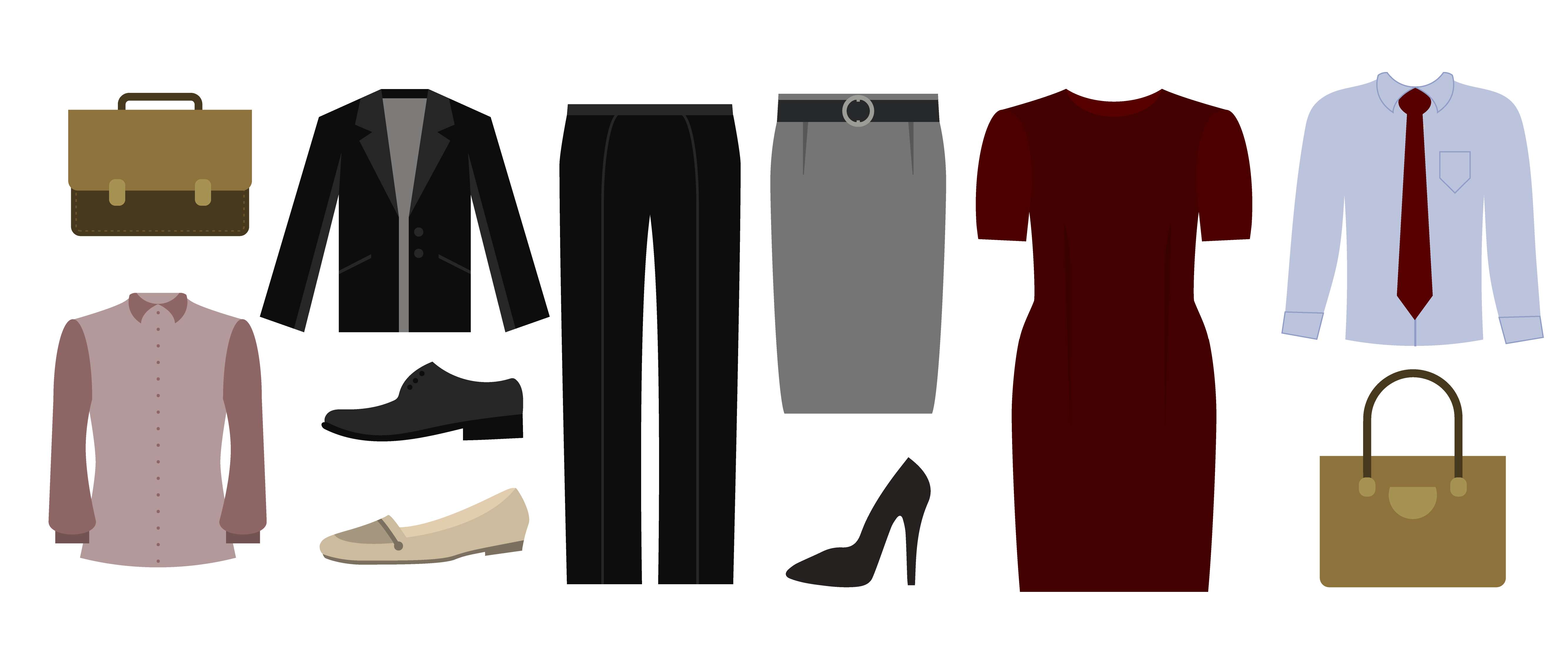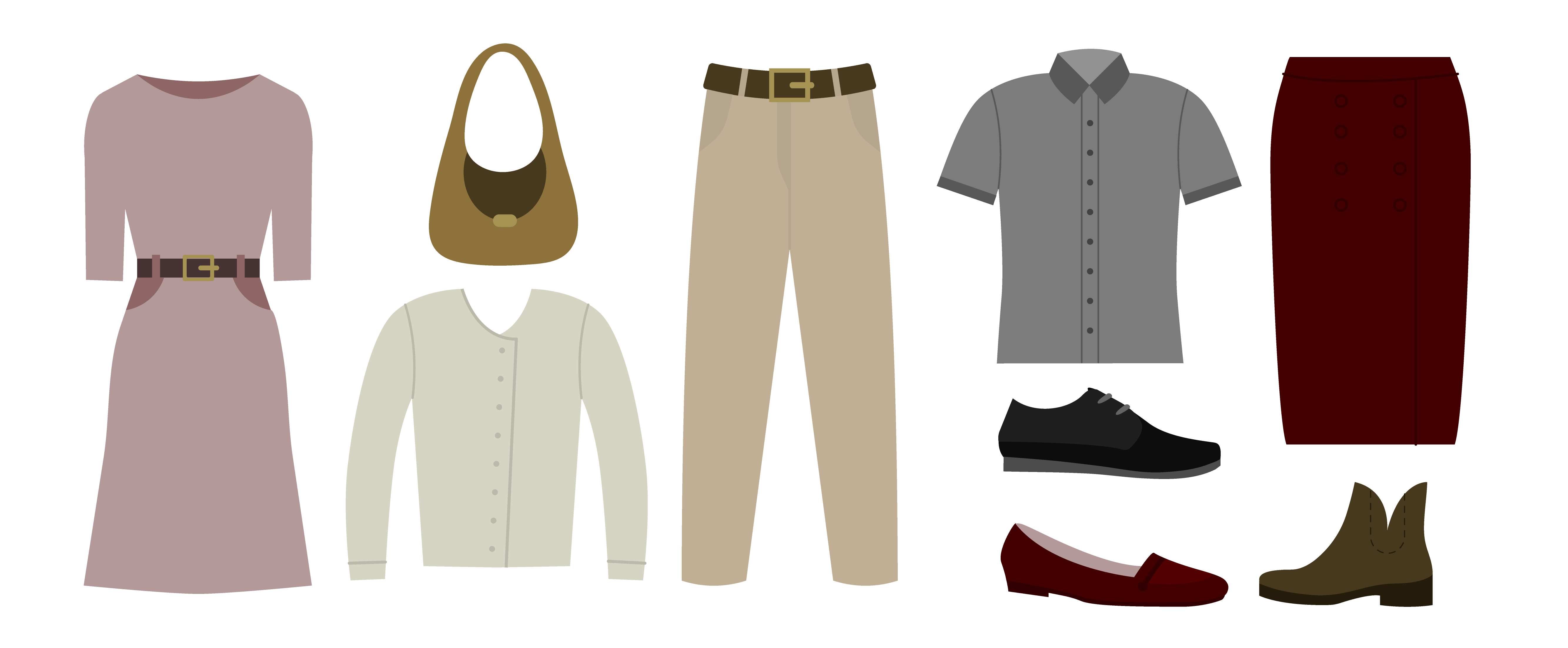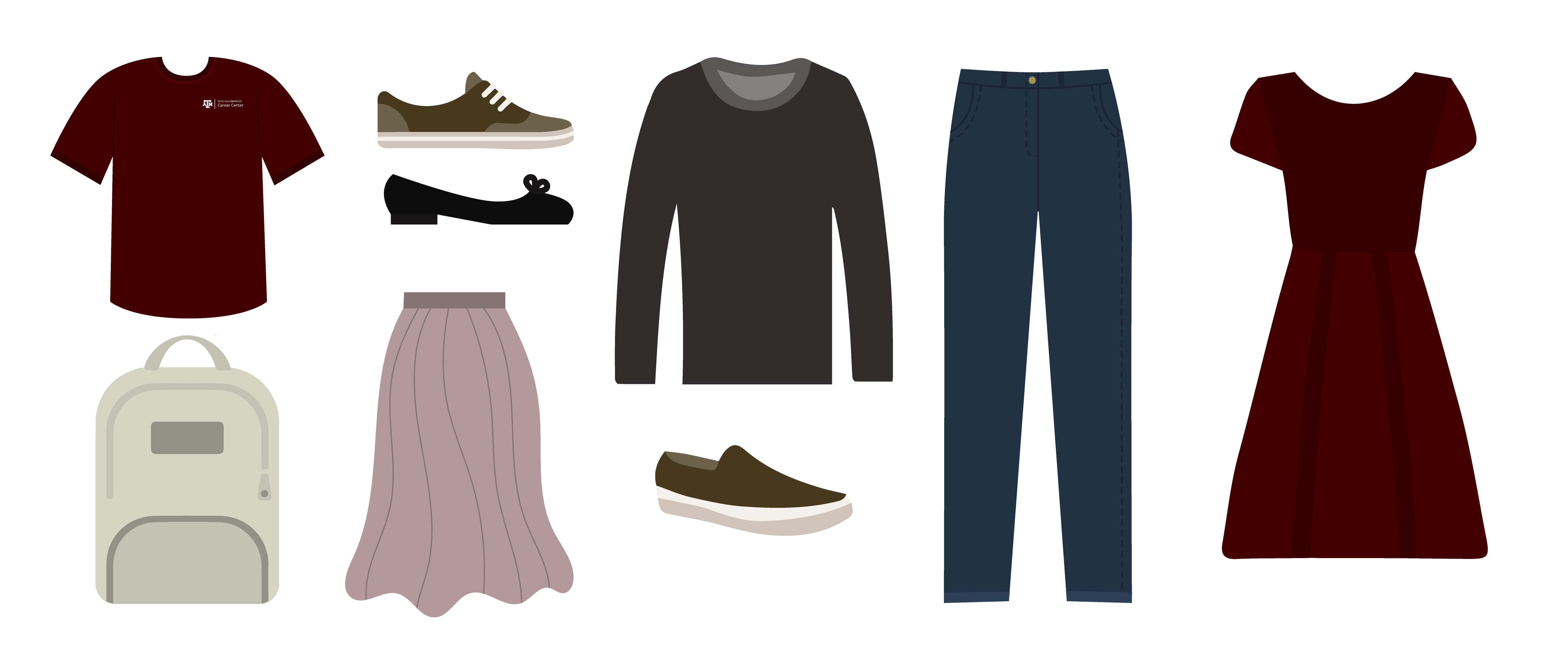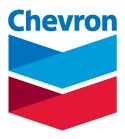Did you know that a hiring decision can take place within the first few minutes of your interview? This means that dressing appropriately is very important!
Why Appearance Matters in an Interview and on the Job
Your job interview attire can make or break your first impression. Appearance matters and can communicate your motivation, judgment, professionalism, and cultural fit within the organization. To maximize your chances of success, dress appropriately and show respect for the company's values. For an interview, you want to communicate respect, so you should dress a little more conservatively and formally than employees typically dress at that organization.How to Dress for Success
You can check the company website or it’s perfectly appropriate to ask the person scheduling your interview for information on the company dress code. Rule of thumb: When in doubt, ask!General Dress for Success Guidelines
- Different companies and industries have different norms in regard to business dress, so it's important to research a company and its culture to learn more about its dress code. The standard protocol is professional dress, which means a conservative, well-tailored suit. While a business suit is not always the everyday work attire for an organization, recruiters expect candidates to look their most professional during a job interview.
- The primary goal of dressing for your interview is to feel good and look professional. If you feel uncomfortable in an outfit - even if it fits and people say you look great - don’t wear it.
- Whether it's Business Professional, Business Casual, or Smart Casual, there are certain things you should always avoid. These include wearing dirty or wrinkled clothes, scuffed shoes, chipped nails, athletic clothing, sneakers, hiking boots, flip-flops, athletic sandals, and any shorts, skirts, or tops that are too short or tight for the office.
- When preparing for a virtual interview, it is important to follow the same dress code guidelines as you would for an in-person interview. Avoid taking a virtual interview lightly, and ensure that you dress professionally and appropriately for the occasion, even if you're interviewing from the comfort of your own home.
We understand that your culture, gender, and religious identity may influence your choice of attire. Therefore, we encourage you to incorporate those elements into your dress for success wardrobe. Our information is purposefully gender-neutral and inclusive of diverse ethnic, cultural, and religious backgrounds. We believe that everyone should feel comfortable and confident in their professional attire, while also honoring their personal identity and culture.
Business Professional Attire
.png)
- Two-piece suit and tie; solid, neutral colors are best
- Skirt length should be to the knee
- Solid color or subtle patterned blouse/top/dress shirt
- Minimal jewelry
- Dark shoes with dark socks. If you are unsure which shoe or sock colors “go” with your suit, or what color belt you should pair with your suit/shoes, ask the Career Advisors for advice
- Closed-toe shoes (1 or 2 inches heel height) are appropriate but should be comfortable to stand and walk in; flats or wedges are okay as well
- Trimmed facial hair
- Carry a portfolio, professional bag or simple, small purse (no backpacks)
Business Casual Attire

- Wearing a tie is optional
- Sport coats/blazers are appropriate, but not required
- Shirts should be collared (polo or button-down)
- Dress pant options include slacks, khakis, chinos (No leggings!)
- Dresses or skirt/blouse combinations are appropriate (sundresses are not appropriate)
- Shorts are not considered appropriate for interviews
- Good casual shoes, like loafers, flats, wedges, or low heels (but no flip-flops!) or fashion sneakers
Note: Images presented showcase the minimum requirement and students are advised to err on the side of caution and overdress based on the occasion
Smart Casual Attire

- Anything listed as Business Casual, and:
- Jeans—avoid rips or holes; darker washes are generally considered more professional
- Clean, plain T-shirts
- No sandals, athletic sneakers or flip-flops!
- Avoid athleisure wear, spaghetti straps or camisoles, or any top that reveals too much bare skin
Here are some Non-Dress Issues to Consider Before a Job Interview:
- Turn off your phone completely: Even the vibration setting can be distracting and interrupt your conversation flow with the interviewer.
- Iron your clothes: Employers notice wrinkled clothes, so make sure to iron them before the interview.
- Avoid distracting accessories: Accessories are great, but they should not draw attention away from you or your prospective employer.
- Be mindful of personal expression: Visible tattoos, facial piercings, brightly colored hair, etc. may not be within the cultural norms of the office/organization. Wait until you've landed the job to showcase your personal expression.
- Avoid wearing hats or ball caps: Unless religious exceptions apply, do not wear hats or ball caps to an interview.
- Maintain personal hygiene: Employers expect a certain level of personal hygiene from interviewees, including bathing, using deodorant, and having clean hair, neatly trimmed facial hair (religious exceptions apply), and clean and trimmed nails. Avoid excessive perfumes/cologne.
- Freshen up your breath: Brush your teeth right before the interview and carry breath mints for last-minute emergencies. However, do not chew gum or candy during the interview.
- Keep your interview clothes smoke-free: If you smoke, keep your interview clothes somewhere smoke-free.
- Wear subtle makeup and avoid any distractions by emptying your pockets: Remove any coins or anything else that could be a distraction.
Texas A&M Career Closet
If you need professional attire but can't afford it, consider using the Texas A&M Career Closet. Schedule an appointment, choose your business attire to rent, then return it after having it dry cleaned. Visit their Career Closet for more information.Remember, the goal of the interview is to get the job offer! Pay attention to both your dress and personal grooming to ensure that your potential employer is paying attention to your accomplishments and professionalism. If you have any specific concerns or questions, reach out to the our staff for guidance.
